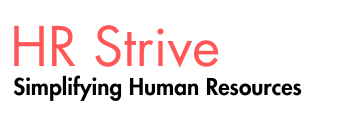Analytical Aptitude refers to examining an idea, a process, or an event with an open, objective, and inquiring mind. It is a critical skill in evidence-based decision making (EBDM), using sound data to hypothesize, assess, and select solutions.
Applied Skills
and Knowledge includes the following in the Analytical Aptitude competency:
· Data advocacy.
Developing an inquiring mindset, learning what data drives the business
and where it can be found, developing partnerships across the organization to
promote EBDM, and modeling the skill of EBDM to the entire organization through
the decisions HR makes and the plans of action it undertakes
·
Data gathering.
Knowing what constitutes sufficient, credible, and objective evidence
and being able to find it
·
Data analysis. Being able to organize data so that it reveals
patterns and to analyze it to detect logical relationships
· EBDM. Being able to apply the results of data gathering and analysis to make better business decisions
All members of modern
organizations are being asked to be accountable for their use of the
organization's limited resources and to identify and manage threats and
opportunities in their lines of business and across the organization. For
example, HR professionals must be able to demonstrate the soundness of
investments in tactics designed to increase engagement and retention by
measuring the results of ongoing activities and by using evidence to support
effective tactics.
Effective data advocates show
that analysis does not exist for the sake of analysis; it is focused on making
more informed decisions that minimize risk and maximize opportunities. They
also assist in building a data-driven culture, encouraging EBDM throughout the
organization, from the bottom up.
Steps in Evidence-Based Decision Making
HR professionals should consider
following six steps described by Ben Eubanks, a human resource management
specialist. Eubanks's recommendations are based on research.
· Ask. When faced with a problem, translate the situation into a question that can then be answered through information gathering. For example, an HR manager notes that the discipline system the organization uses is not effective in preventing eventual terminations or resignations. The HR manager asks, "What are we doing now? Does our disciplinary approach reflect what we know about adult behavior and motivation to change?"
·
Acquire. Gather
information from varied sources. For example, the HR manager reviews the
organization's policies and processes concerning discipline and retrieves from
HR's records data about disciplinary actions and subsequent employee history.
The HR manager develops some case studies on specific incidents, gathering
information from the supervisors involved. The manager also begins to gather
information about current research into these areas and assessments of current
practices from journals and HR professional societies and networks.
·
Appraise. Determine whether the evidence gathered is relevant,
valid, reliable, accurate, complete, and unbiased.
·
Aggregate. Combine
and organize the data to prepare it for analysis. Determine the priority to be
given to different types of information.
·
Apply. See the logical connections within the data and with
the issue. Use the data to draw conclusions, develop possible solutions, win
sponsor support for a decision, and take action.
·
Assess. Monitor
the solution that has been implemented and objectively measure the extent to which the objectives
have been attained.

No comments:
Post a Comment